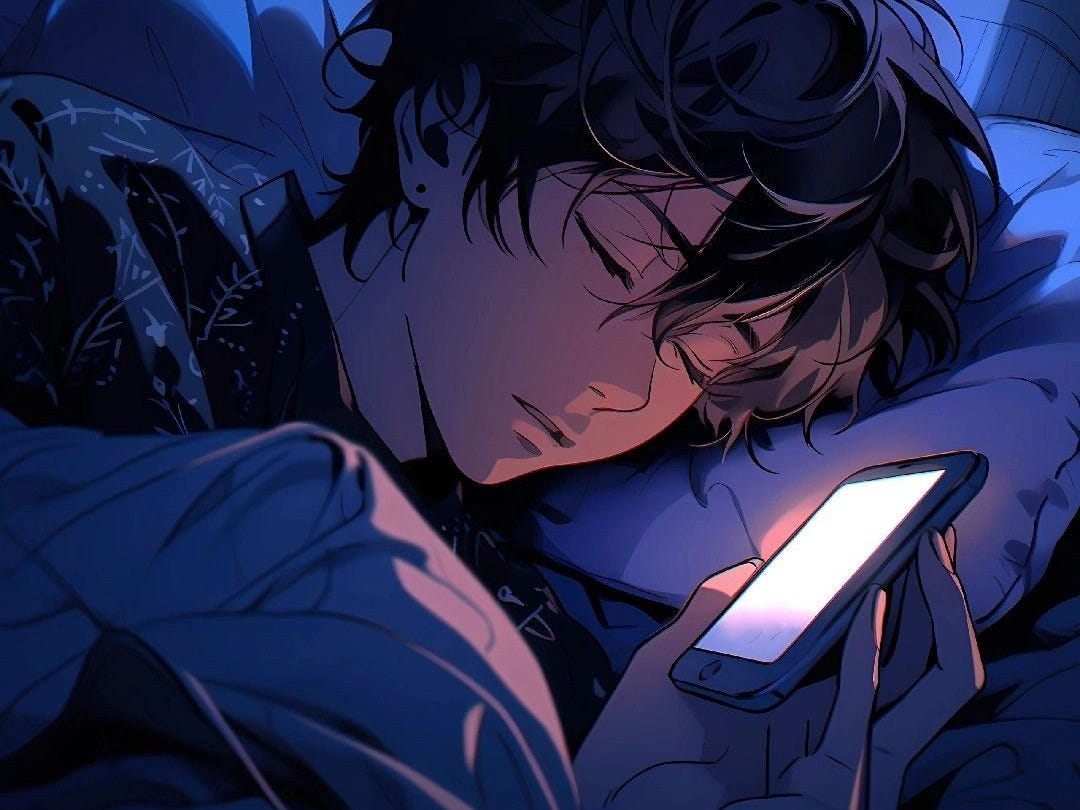Breaking the Scroll: My Journey to Mental Clarity
How I Reclaimed My Brain from Digital Addiction
Last Tuesday night, I found myself in a familiar trap. It was 2 AM, my eyes were burning, and I was still mindlessly scrolling through TikTok videos I wouldn't even remember the next day. Sound familiar?
That night was my breaking point. I looked at my screen time report – nearly 7 hours that day – and felt a wave of disgust wash over me. Where had my ambitions gone? What happened to all those plans and goals I'd set for myself?
I'm sharing this because I know I'm not alone. We're all fighting this battle in the attention economy, where platforms are literally engineered to keep us hooked. But here's the thing – I found a way out, and it transformed my life in ways I couldn't have imagined.
My Dopamine Wake-Up Call
Let me take you back three months, to when I first discovered what was happening to my brain.
I was researching why I couldn't focus on anything meaningful for more than 15 minutes, yet could scroll social media for hours without blinking. That's when I stumbled upon the concept of dopamine detox.
Dopamine is that feel-good neurotransmitter your brain releases when you experience pleasure. Every notification, like, and new video gives you a tiny hit of it. The problem? My brain had become so accustomed to these constant, easy dopamine hits that activities requiring effort – reading, working, even having deep conversations – felt unbearably boring.
Think about it this way: if you've been eating nothing but sugary desserts, a normal healthy meal tastes bland. My brain was on a dopamine sugar rush, and anything requiring effort felt like eating plain broccoli.
What My Detox Actually Looked Like
When I first learned about dopamine detox, I imagined locking myself in a dark room for days. Thankfully, that's not how it works.
What I discovered from Cameron Sepah (the psychologist who pioneered this concept) is that it's not about eliminating dopamine – it's about breaking the automatic behavioral patterns we've developed around our devices.
For me, this meant setting specific boundaries. I started small: no phone for the first hour after waking up and the last hour before bed. I stored my phone in another room while working. I deleted the social apps that were my biggest time-wasters.
The first three days were brutal. I'd reach for my phone 50+ times a day out of pure habit. I felt antsy, irritable, and – here's the strangest part – profoundly bored. It was as if I'd forgotten how to just exist without constant stimulation.
But by the end of the first week, something shifted. I finished reading a book for the first time in months. I had a two-hour conversation with my sister without once checking my phone. I actually completed a work project ahead of schedule.
What Changed in My Brain
As Aristotle wisely noted over two thousand years ago, "We are what we repeatedly do. Excellence, then, is not an act, but a habit." This quote took on new meaning for me during my detox.
What fascinated me most was how my perception changed. Things that had seemed boring before – like organizing my workspace or cooking a meal from scratch – suddenly became engaging. Without the constant comparison to hyperstimulating content, my brain relearned how to derive satisfaction from normal activities.
John Christy Johnson, a medical engineering student who researches this phenomenon, explains it perfectly: "When you frequently engage in a behavior, it strengthens the pathways in your brain until they become automatic. Dopamine fasting weakens those pathways, giving you back conscious control."
That's exactly what I experienced. I wasn't changing who I was – I was reclaiming who I was from algorithms designed to hijack my attention.
The Real-World Benefits I Experienced
By week three, the changes were undeniable:
My sleep improved dramatically – I was falling asleep within minutes instead of tossing and turning for hours.
My anxiety levels dropped – turns out, consuming a constant stream of content designed to trigger emotional responses isn't great for mental health.
My productivity doubled – I wasn't actually working more hours, I was just fully present during the hours I did work.
My relationships deepened – being fully present with people makes a world of difference in how connected you feel.
The most profound change, though, was in how I felt about myself. That constant background noise of inadequacy – seeing everyone's highlight reels while living my behind-the-scenes – had finally quieted down.
What This Could Mean For You
Now, I'm not suggesting you need to throw your phone into the ocean. What worked for me was creating intentional boundaries around technology use and replacing mindless scrolling with activities that actually moved my life forward.
If you're feeling stuck in the same cycle I was, try this: identify your biggest digital time-waster and set just one boundary around it. Maybe it's no phones during meals, or social media only after 6 PM, or a "tech Sabbath" one day a week.
The goal isn't perfection – it's consciousness. Being deliberate about what you allow to consume your attention rather than operating on autopilot.
“Your attention is the most valuable resource you own. It's the only thing that can't be replaced." - Alex Hormozi
Remember, where you direct your attention determines the quality of your life. I had to learn this lesson the hard way, but it's transformed everything for me.
If you've been feeling that same nagging sense that your potential is being drained away one scroll at a time, I hope my story gives you the nudge to reclaim your focus. The world needs your full attention on what matters most to you.
See you in the next edition.
~MF


